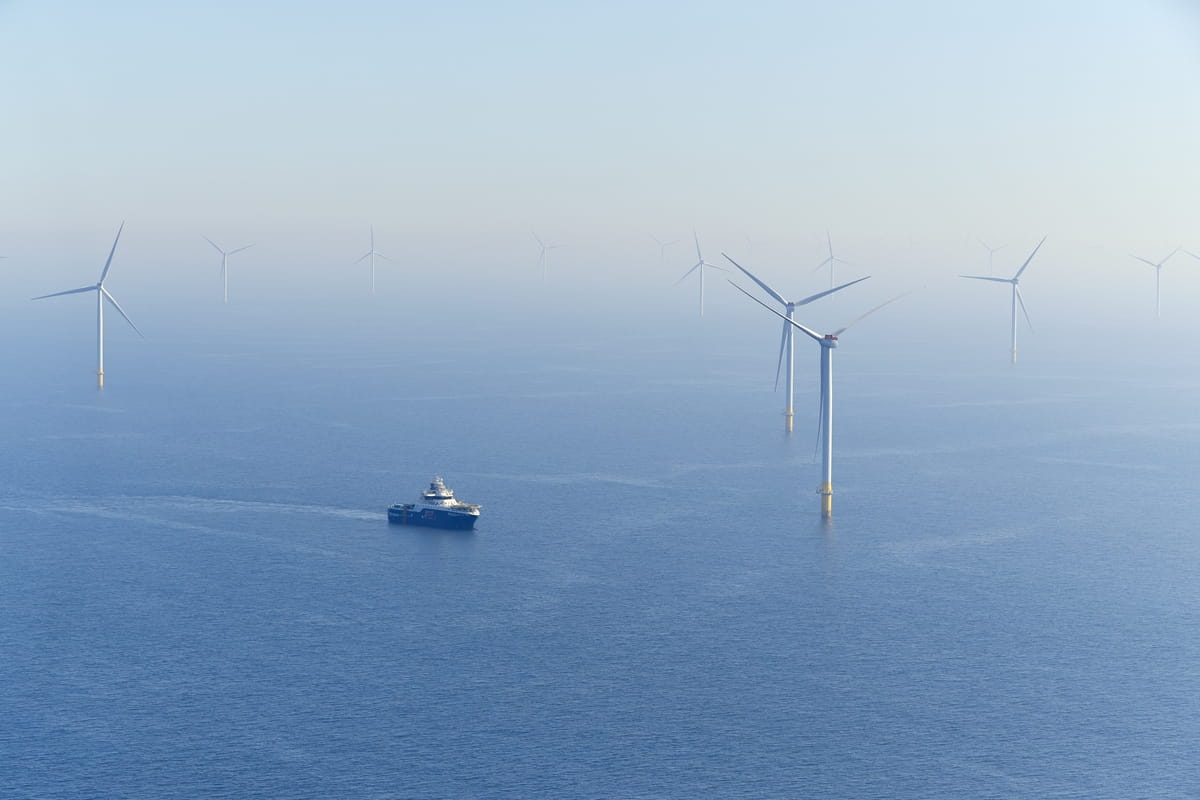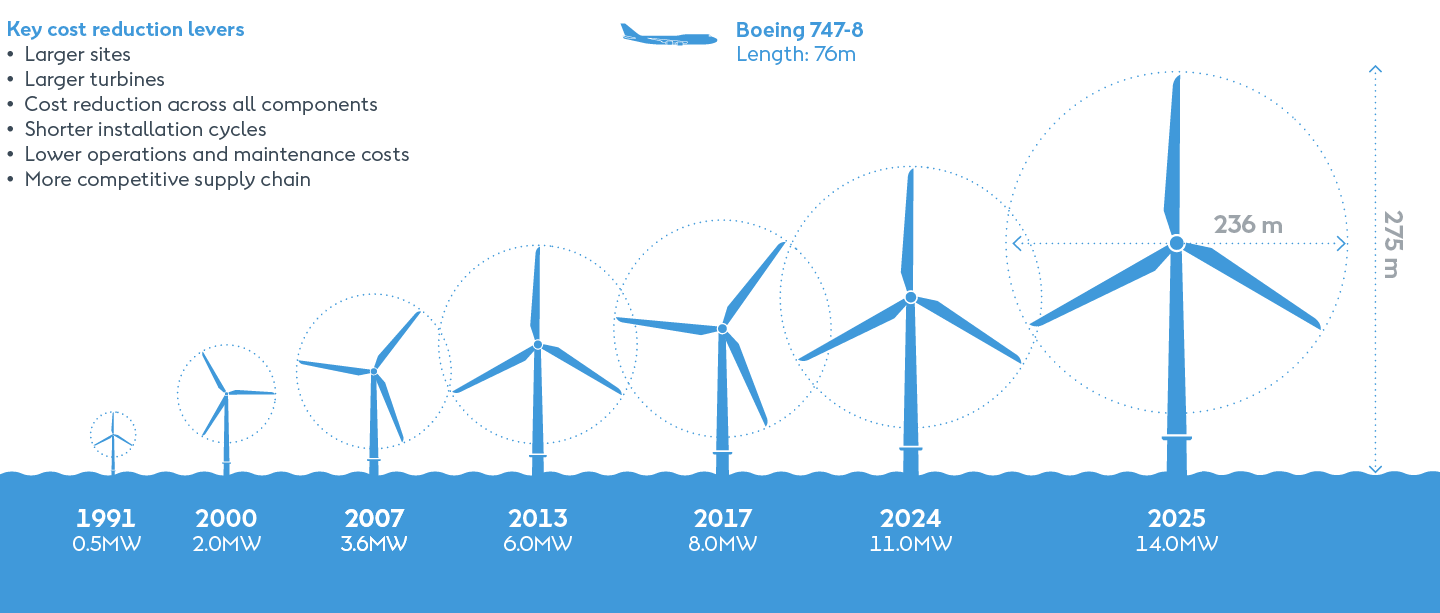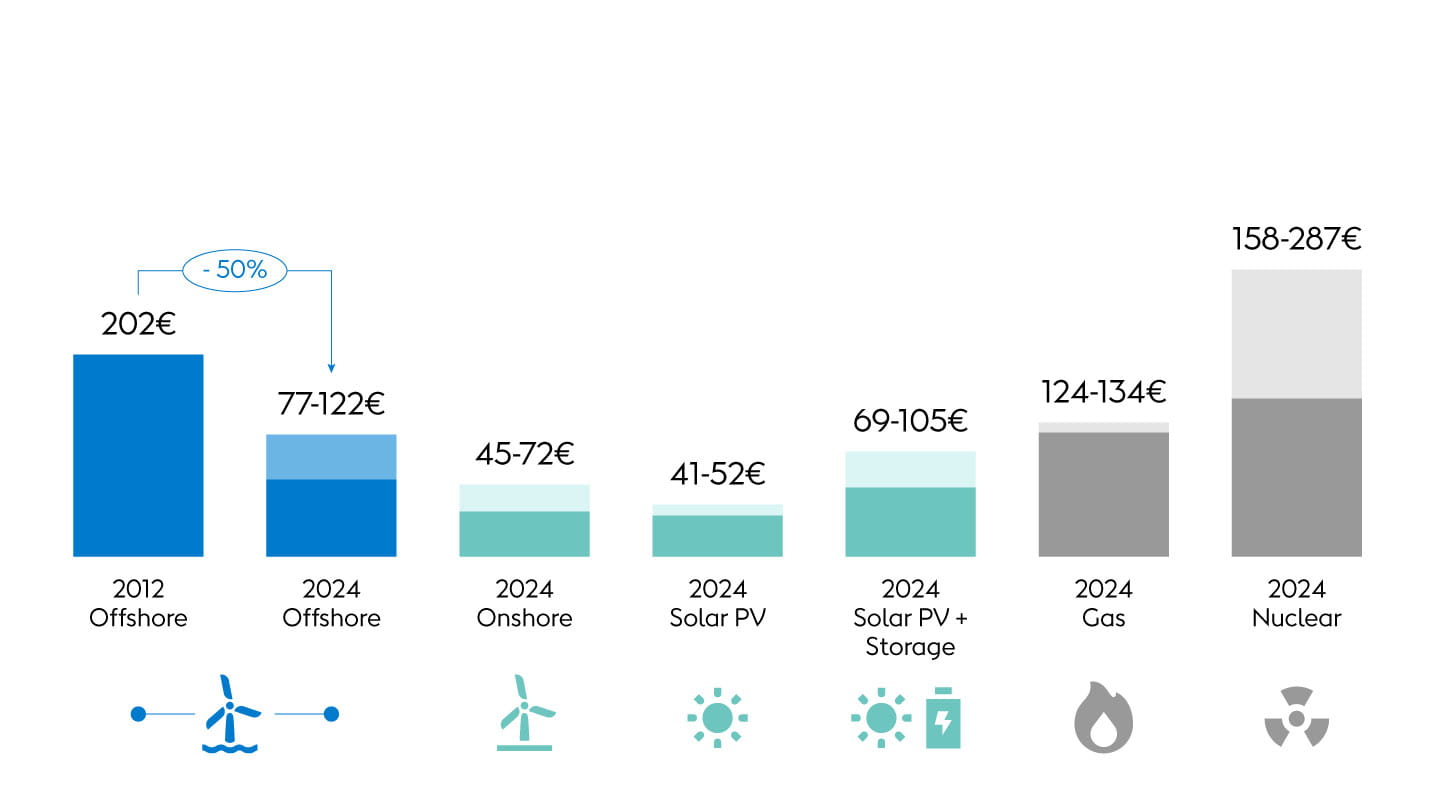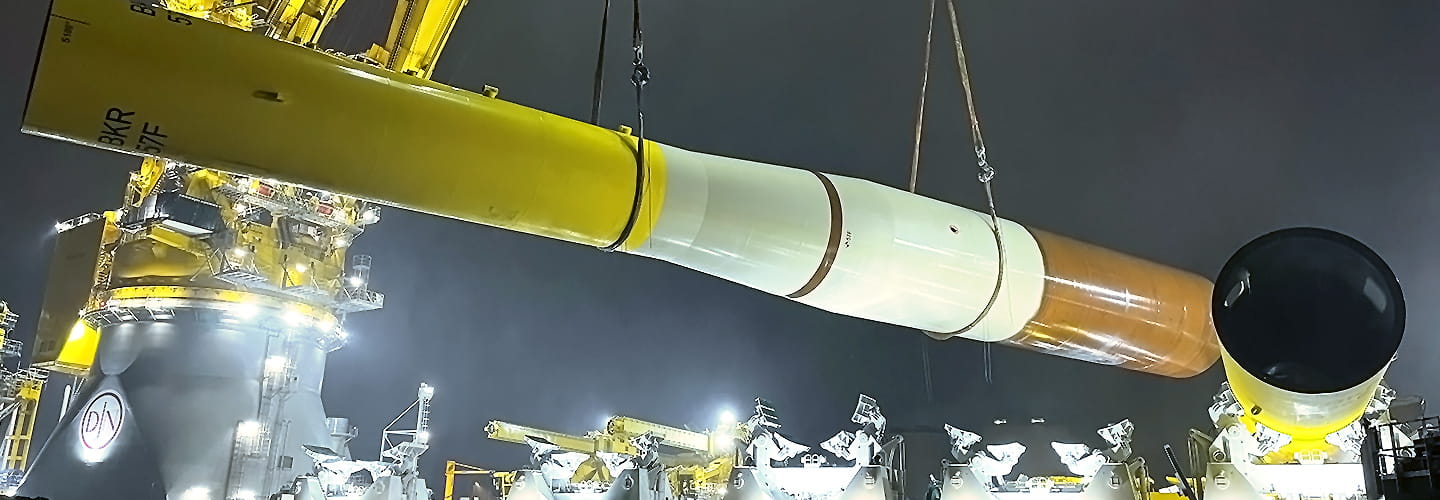How it works

How it works

At the core of wind technology is electromagnetism. As a wind turbine’s blades are turned by the wind, the magnets in the turbine rotate inside a coil of conductive wire, generating electrical energy. We bring this energy to shore via subsea cables.
As a developer we’re always working to improve turbine installation, foundation design, logistics, and digitalisation. Together with our suppliers’ work to improve components and wind turbines, this ensures ongoing innovation in wind energy.

Levelised cost of electricity (LCoE)
EUR/MWh, FID 2023, 2023 prices, Northwestern Europe

Growth
Global offshore wind capacity grew by 286% from 2017 to 2023, according to the International Renewable Energy Agency (IRENA). But offshore wind needs to grow much faster.
Installed capacity1, growth, and passion at Ørsted
Our passion for offshore wind has taken us far. We’ve installed 10.2 GW of offshore wind across Europe, the US and Asia – that’s more wind farms at sea than any company worldwide – and 8.1 GW are under construction2.
Typically, we divest 50% of our offshore wind farms to industrial and institutional partners and re-invest the capital in new renewables projects.
What’s next in offshore wind?
Some countries have a shortage of renewable energy sources, while others have more renewable energy than they can use. Like the European Commission, we believe that connecting offshore wind farms to two or more markets at the same time, essentially combining offshore wind farms and interconnectors into ‘offshore hybrid projects’, is a good idea. It will help Europe distribute renewable electricity among its Member States. Find out more in Making Hybrids Happen, our joint paper with Elia Group.
Our projects
See all our offshore wind farms, our locations, our installed capacity, and more

We’re currently building Germany’s biggest offshore wind farm, Borkum Riffgrund 3, in the German North Sea.
83 Siemens Gamesa 11-MW turbines
200-metre rotor diameter
913 MW total capacity
For this project we submitted the first zero-subsidy bid in an offshore wind auction by concluding long-term power purchase agreements with Covestro, Amazon, REWE Group, BASF, and Google – for a total of 686 MW.
FAQs